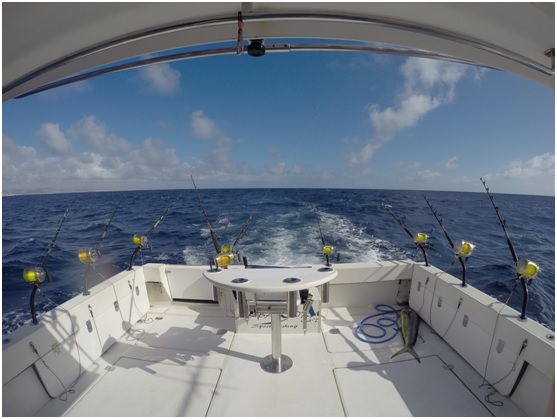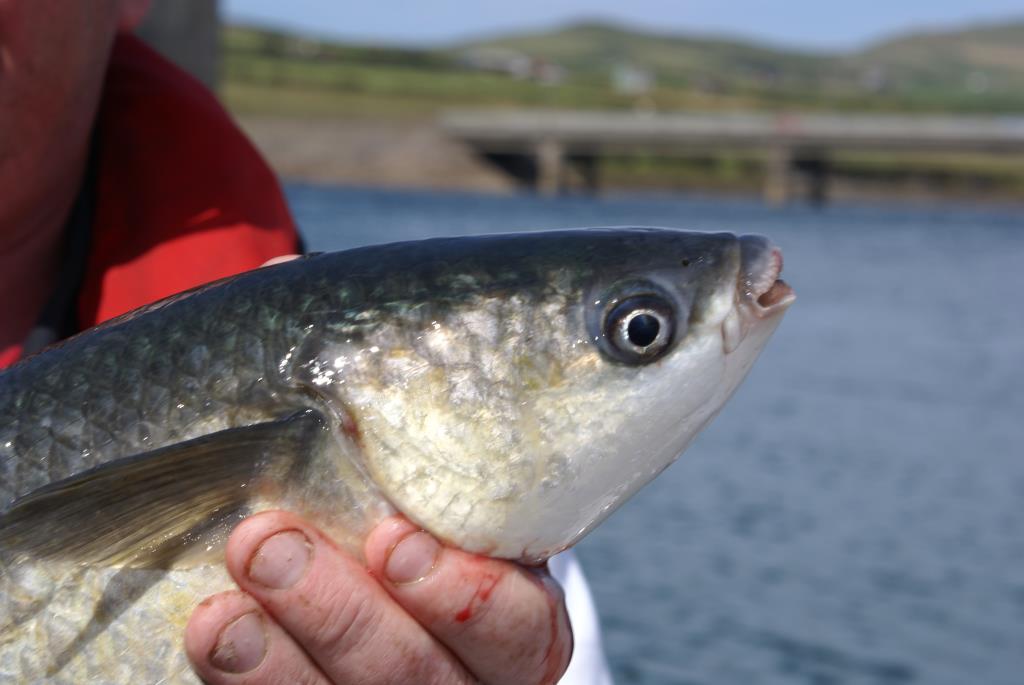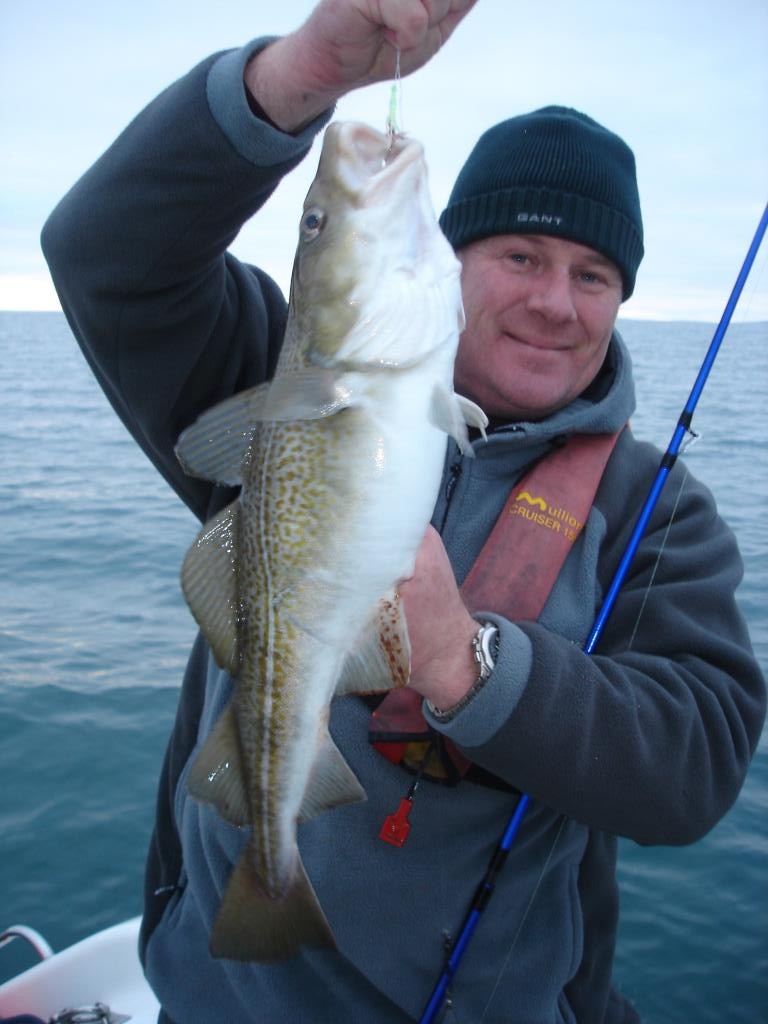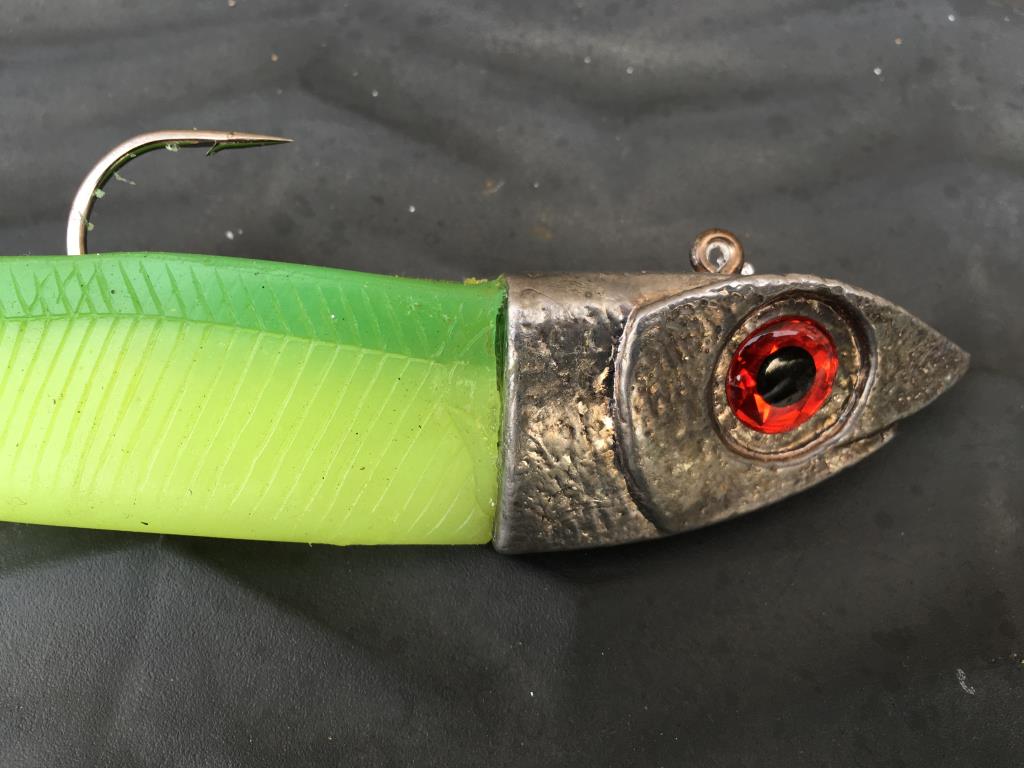* Beyond Hype! – Bass Angling and Beyond.

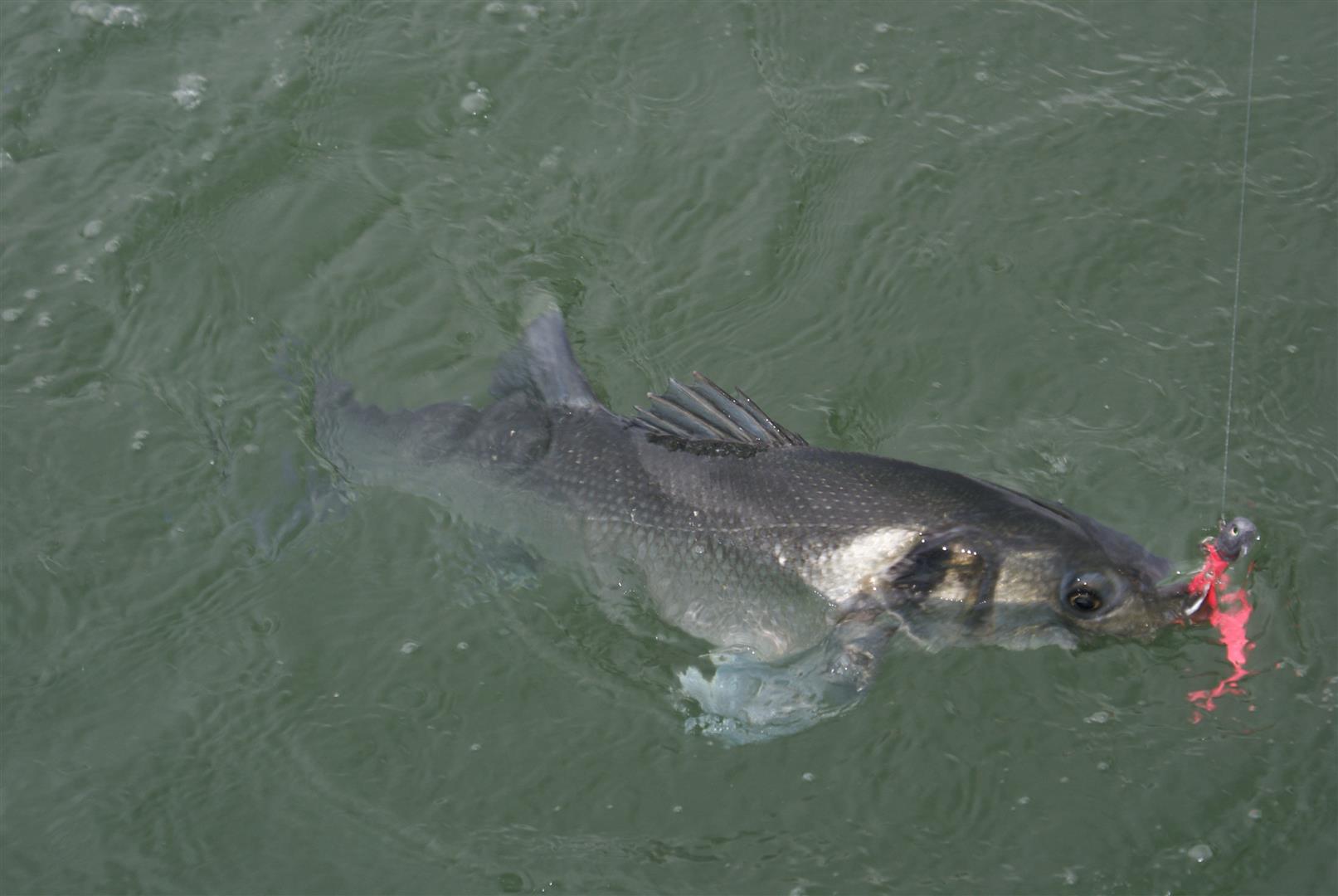
The EU Fisheries Council of Ministers takes advice from various advisory bodies. Some are EU bodies and some are independent. The powerful Fisheries Committee (PECH) advise the council. The Scientific, Technical and Economic Committee for Fisheries (STECF) are important as are the International Council for the Exploration of the Seas (ICES). Each year ICES produces a “stock book” which contains advice and data on a range of species and locations.
So, with ICES recommending zero catch including recreational for 2017 what are the likely outcomes?
ICES deals with “catch” as being fish retained. So it would be clear that the worst case scenario for anglers would be catch and release for the year 2017. Not nice for anglers that like to keep some bass for the table but it could be a worthwhile short term sacrifice for the benefit of bass stocks.
The likelihood of zero commercial catch is remote. It is highly unlikely that the EU would recommend the closure of all bass commercial fishing for the year. It is a lucrative fishery and there are many commercials working from small communities along the south coast of the UK and France. It is highly likely that there could be another moratorium. It is likely that “less selective” fishing methods could be targeted. It is hard to imagine that the current regulations for anglers would be changed, though that will come down to the strength of the recreational lobby.
Decembers Council meeting will be watched with concern and interest.
Don’t get carried away!
We have written before on TopFisher about the “hype” that can surround different types of fishing and especially the hype that can surround bass angling.
It would seem that current EU manoeuvrings aimed at securing a future for bass populations north of the Bay of Biscay are not immune from the hype either!
A look at social media sites shows how many anglers seem to have lost the run of themselves. Generally a trend is forming: many commentators seem to be happy to ignore the facts and logic in favour of hyping up a sensitive issue. This is a complex issue that should not be dumbed down by simplistic analysis.
There seems to be a degree of linkage of the current bass workings and the Brexit vote in some quarters. The UK will remain members of the EU for at least another two years and therefore will be bound by EU regulation until that time at least.
Let’s cut away from the hype and look to where bass are in terms of angling. The EU has declared its intention as to the future of commercial fishing:
The principal aim of fisheries management under the Common Fisheries Policy (CFP) is to ensure high long-term fishing yields for all stocks by 2015 where possible, and at the latest by 2020. This is referred to as maximum sustainable yield. Another increasingly important aim is to reduce unwanted catches and wasteful practices to the minimum or avoid them altogether, through the gradual introduction of a landing obligation. Lastly, the new CFP has overhauled its rules and management structure, with regionalisation and more extensive stakeholder consultation.
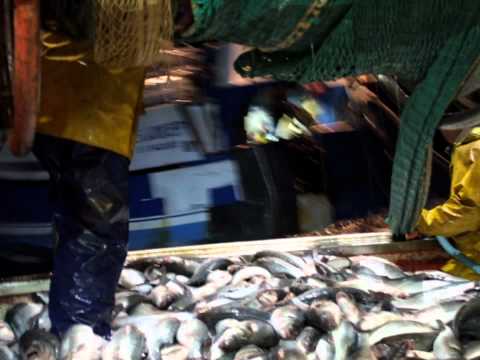
ICES advice is not new. While they have not mentioned bass every year, since 2012 they have appeared in the Stock Book. While the advice is taken into consideration it is rarely followed to the letter except in really exceptional circumstances or where the EU has tried other measures and eventually take drastic measures. Take bass for an example:
| Year | ICES Advice | Predicted result (tonnes) | Catch (tonnes) |
| 2010 | None | 4900 | |
| 2011 | None | 3900 | |
| 2012 | No increase in catch | 3900 | |
| 2013 | 20% Reduction | <6 | 4100 |
| 2014 | 36% reduction | <2707 Rec Landings | 2800 |
| 2015 | MSY Approach | <1155 Rec Landings | 2100 |
| 2016 | MSY Approach | <541 Rec Landings | |
| 2017 | Precautionary Approach | 0 |
You can see from the above that advice is not usually followed to the letter as there are “other” considerations other than scientific advice. (To see the workings it is interesting to look at species such as cod or herring.) To put it simply, there is a degree of “Realpolitik” that goes on to ensure a balance between the needs and wants of the EU and the situation of the fish stock.
Since 2015 the EU has been imposing ever tightening restrictions on bass fishing.
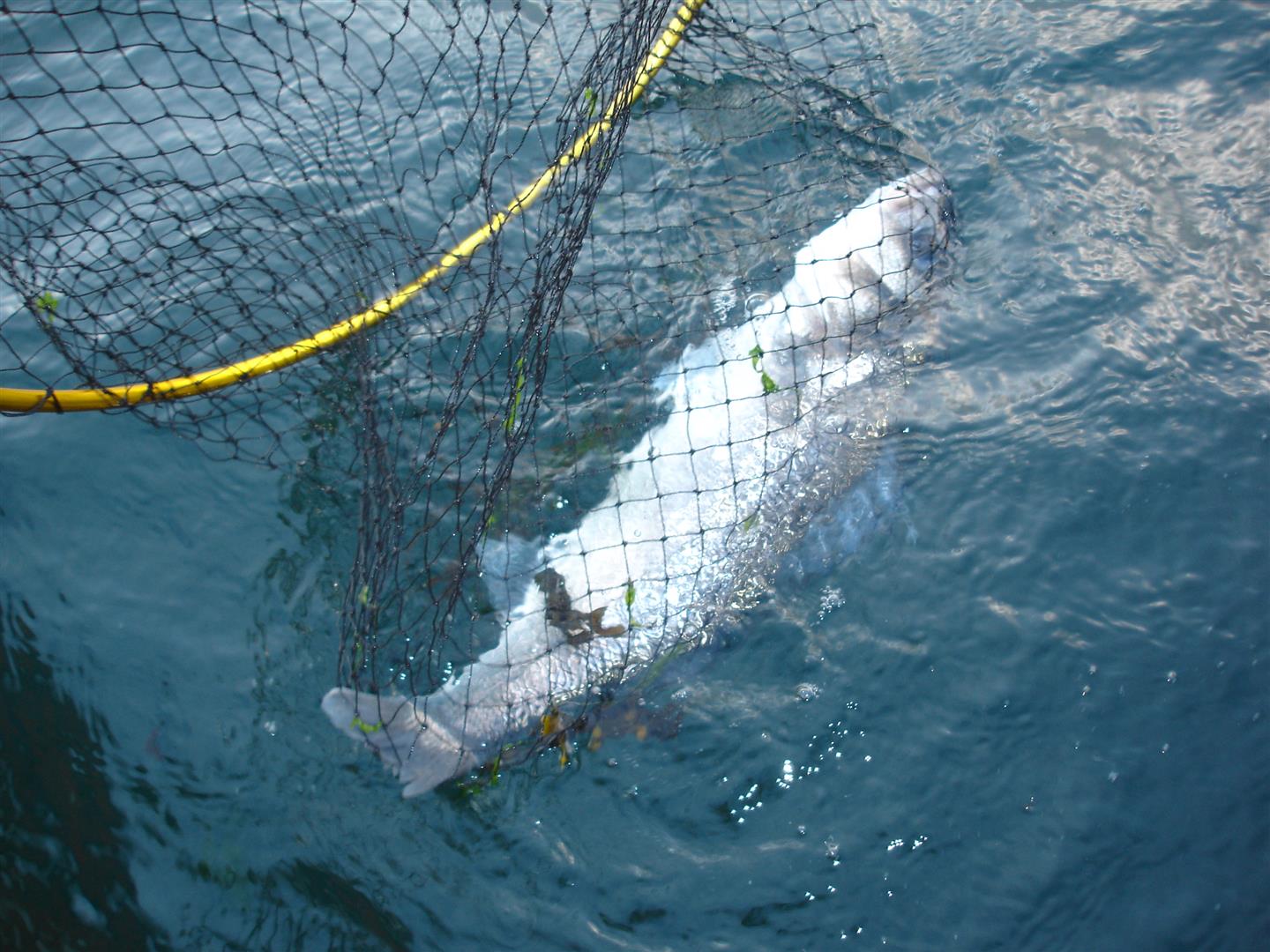
Recreational anglers have been crying out for representation at decision making level for many years now. The sector was largely ignored when it came to the divide up the annual fish quota. The price for representation at decision making level seems to be that now the recreational catch is being considered as part of the overall landing figures. The price for representation is high even though the recreational catch is very hard to estimate.
The estimate of recreational catches of bass being in the order or 25% of commercial catches has been contested by anglers. Many feel that the catch and release angling practiced by many bass anglers is not reflected. It looks like bass angling could be suffering from the over estimation of angling and angling spend by various organisations. Either the organisations or the anglers surveyed are prone to some exaggeration!
It looks like angling representatives got a lesson in the workings of the professional fishing industry lobby last year. Discussion centred around the Emergency Measures for 2016 – A moratorium for 6 months for commercial fishing and 1 tonne per month commercial limit per craft, catch and release for anglers for 6 months and then a 1 fish limit for the remainder of the year. It would seem that angler representatives regarded this as an acceptable sharing of the load to secure a future of bass stocks. Then in the final hours the commercial lobby secured concessions that diluted the moratorium and actually increased the per craft limit to 1.3t. Welcome to the world of realpolitik!
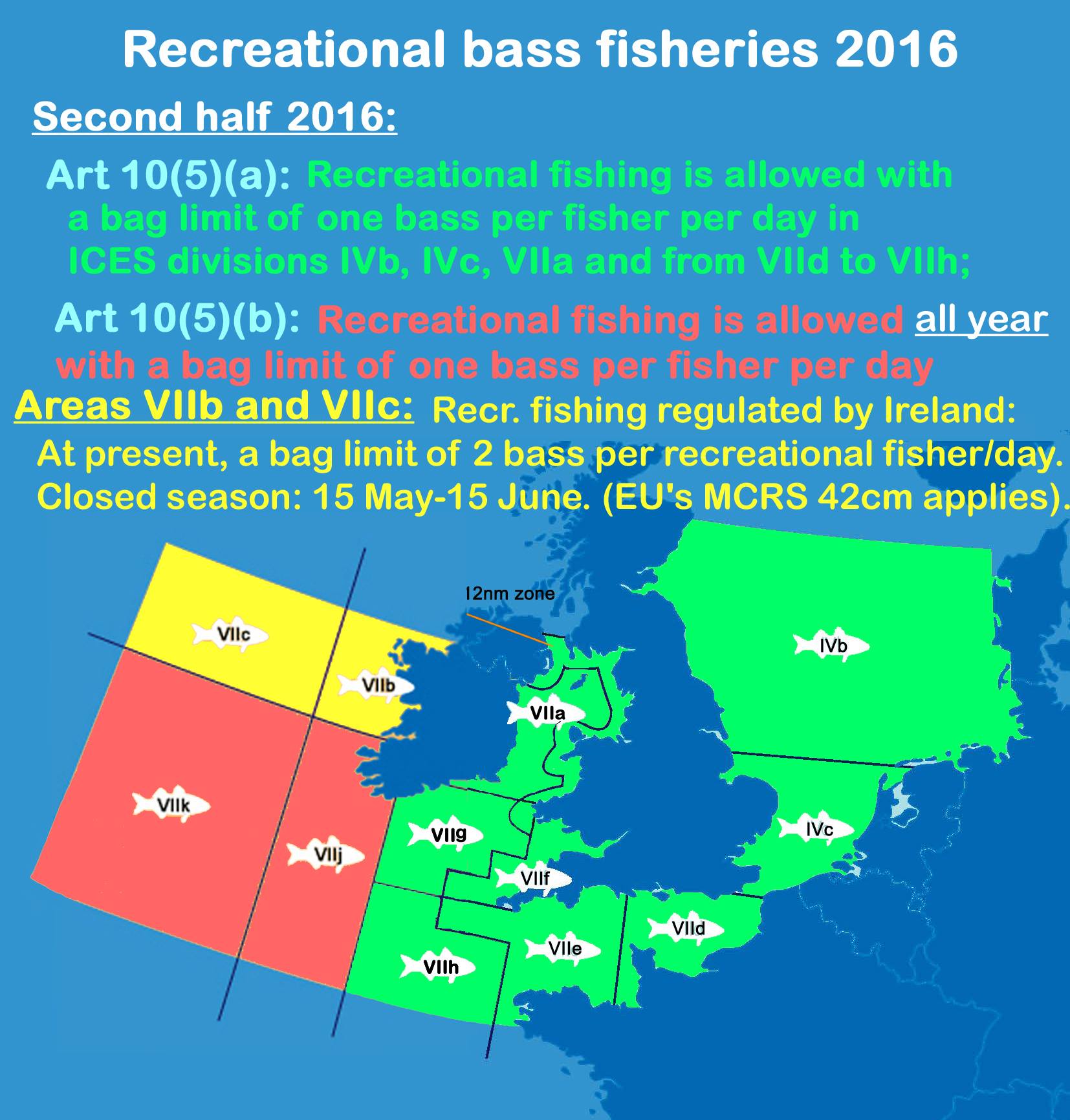
The Bigger Picture
There is an area that needs to concern anglers. In their fight for representation it would appear that recreational angling has stuck its head above the parapet. One wonders do we anglers have the power or the ear of the decision makers. Going forward, commercials will bring recreational catches under scrutiny at every opportunity. They are targeting any perceived competitor including seals! It would seem that any little “victory” is a victory worth fighting for even just to deflect attention.
The recent regulations concerning cod in the Baltic need to set alarm bells ringing. There are new recreational limits on cod retention in the Baltic. Anglers can keep five fish a session.
When cod in other areas become threatened, and they probably will at some stage, expect recreational angling to be targeted. We cannot hope to have a single species lobby group for every species so we will need decent representation.
Enjoy your Bass Fishing!
Look forward to bass fishing in 2017 but also make your voice heard by at least emailing you local representative and support the organisations that are giving anglers a voice.





